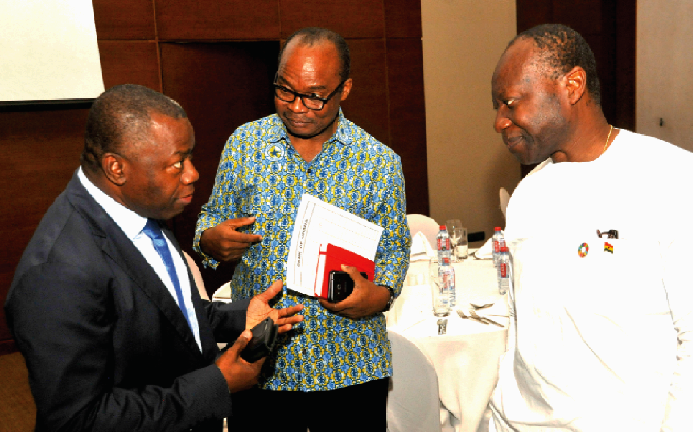The Minister of Finance, Mr Ken Ofori-Atta, has hinted of plans by the government and the Bank of Ghana (BoG) to announce a “substantial increase” in the minimum capital of banks.
The announcement is to be made in the next two to three weeks’, the minister said, explaining that the new figure would aim to “strengthen the banking infrastructure and cut down on certain externalities and behaviours that are occurring because of some form of competition.”
While the government was not against competition in the banking sector, the minister said there were “different natures of competitions” that the country would not tolerate nor encourage, hence the need to weed them out.
He gave the hint at the annual luncheon and general meeting of the Ghana Association of Bankers (GAB) in Accra last week.
“Not to overstep the boundaries of the MoF but it is likely that the new capital requirement will be quite substantial,” he said.
He, however, assured the bankers that the government and the BoG had resolved to give some space for the banks to raise the needed capital.
Ghana as financial centre
The successful announcement of the new minimum capital for banks should bring to an end two years of speculation about the amount of capital the BoG will direct banks to raise.
After successfully recapitalising banks to GH¢120 million in 2012, the BoG had been working through consultations to arrive at an appropriate figure for the next round of recapitalisation.
Mr Ofori-Atta said those consultations had almost clustered and were now at a conclusive stage, with a new figure that is expected to inspire mergers and acquisitions due to be announced soon.
He said the recapitalisation directive would aim at building stronger banks that could help the government to achieve its objective of making Ghana an international financial hub.
As a government, Mr Ofori-Atta said the ministry had resolved to leverage Ghana’s stable socio-political environment to create a robust financial services sector that attracts global giants in the banking sector to set up in the country and offer services to businesses in sub-Saharan Africa.
While the dream is feasible, he said it would require the support of banks and other stakeholders in the sector to accomplish and thus called on GAB to partner the government in making it a reality.
He added that his outfit would not hesitate in granting incentives to the sector should it realise that such stimulants were needed to inspire growth and help create the financial hub that it desires.
The Finance Minister also mentioned the government’s resolve to see interest rates at a single digit, noting that the government had taken note of banks’ snail-pace response to the drastic cut in the BoG’s policy rate this year.
Respect financial contracts
The President of the GAB, Mr Alhassan Andani, thanked the government for helping create a stable macroeconomic environment in the first half of the year but called for measures to help sustain it.
As banks, Mr Andani, who manages Stanbic Bank, said they strove to ensure that the stability reflected in their respective operations through declines in lending rates and other incentives to the private sector.
He also welcomed plans by the government to make the country the hub of financial services in the sub-region, explaining that Ghana’s geographical location made an attractive place for such a plan.
Mr Andani further called on the government and the private sector in general to respect financial contracts by ensuring that loans advanced to them were repaid on schedule.
As an industry that thrives on integrity, Mr Andani said it hurts that contracts signed with customers would be breached, resulting in a spike in non-performing loans (NPLs).
The NPLs ratio, which measures the ratio of loans that are at various stages of default, has risen from 18 per cent in January this year to 21.7 per cent in June.
This means that some GH¢7.9 billion of total loans and advances, which ended in June at GH¢36.5 billion, was classified as delinquent.
